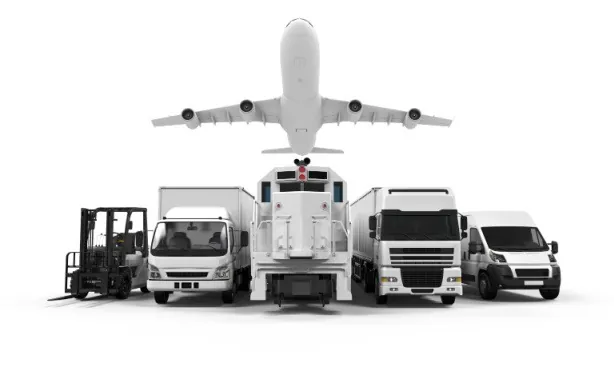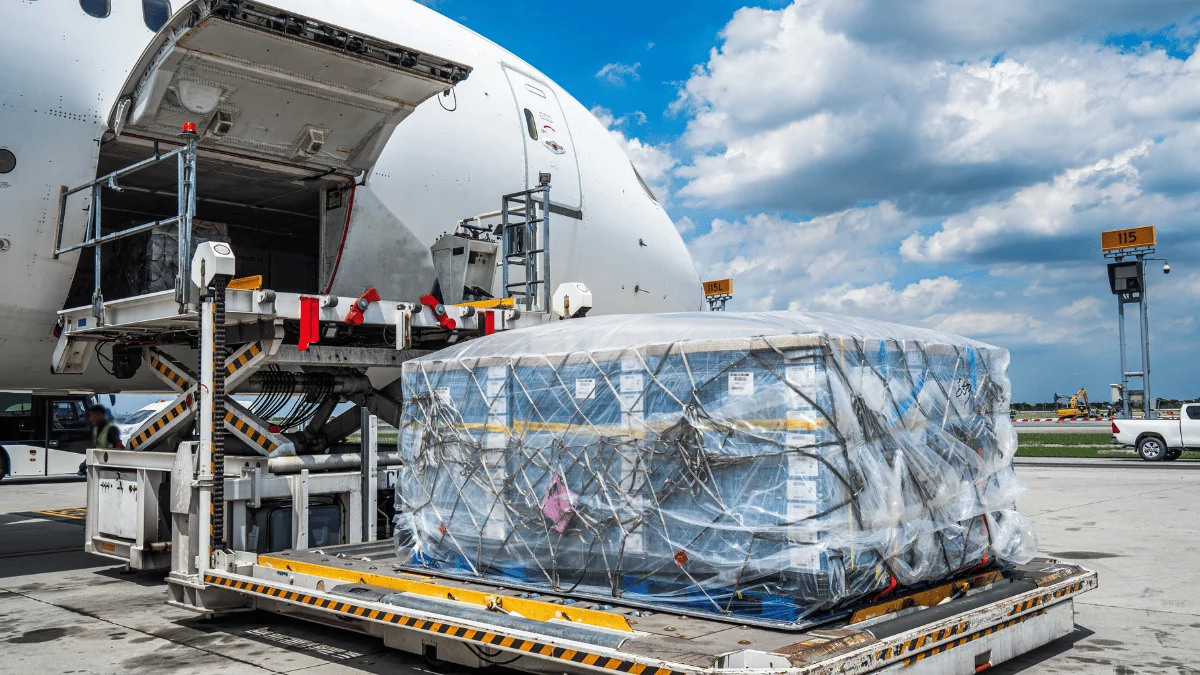
Become a Carrier
Do you want to become a carrier? FreightCenter can help you learn all you need to begin this challenging, but rewarding, career path!
Become a Carrier
Transporting freight is a challenging task. Shippers may not fully understand the complexity of delivering freight from one location to another, especially if they have never booked a shipment.
This highlights the importance of carriers in the logistics industry. They serve as the vital link between the industry and their customers, responsible for transporting freight reliably, safely, and professionally.
While this is a significant responsibility, being a carrier has many advantages. The freight industry is lucrative, offering opportunities for individuals to work independently or as part of a team of drivers and workers. Depending on your experience level, you can even become an independent carrier.
Learn more about how to become a carrier below.
Thousands of businesses trust FreightCenter to move their freight faster, smarter, and cheaper! From unbeatable rates to top-notch service, our customers are raving about their shipping success.
See why they keep coming back!
Award-Winning Service, Trusted by Shippers Everywhere!
- 2021, 2017 & 2016 Food Logistics’ Top Green Providers
- 2021 & 2018 Supply & Demand Chain Executives’ Pros to Know: Matthew Brosious
- 2020 & 2019 Top Food Logistics’ 3PL & Cold Storage Provider Award
- 2020 & 2019 Business Observer’s Top 500 Companies on the Gulf Coast
- 2020 & 2017 SmartWay® Transport Partner
- 2020 & 2017 Food Logistics’ Champions: Rock Stars of the Supply Chain
- 2020 Best of Palm Harbor Awards for Local Businesses
- 2017 Green Supply Chain Award from Supply & Demand Chain Executive
- 2017 Tampa Bay Business Journal Heroes at Work
- 2016, 2015, & 2012 Food Logistics Top 100 Software and Technology Providers
- 2013 Tampa Bay Business 100 by Tampa Bay Business Journal
- 2013 Top 100 Great Supply Chain Partners by SupplyChainBrain
- 2012 TIA Samaritan Award Honorable Mention
- 2012, 2011 & 2010 TBBJ Fast 50 Recipient
- 2013, 2011, & 2010 Diversity Business Top Businesses

Why Choose FreightCenter for Freight Shipping?
Expertise in Freight Shipping: With over 25 years in the logistics industry, FreightCenter is dedicated to guiding you through the entire logistics process, from beginning to end. Our goal is to make freight shipping easy to understand and book. Don’t waste time researching and receiving quotes from individual carriers- FreightCenter’s got your back!
Competitive Rates with Tailored Solutions: We prioritize high-quality customer service without breaking your wallet. We utilize our relationships with regional and national carriers to offer you competitive, affordable rates while providing personalized solutions to your needs. Need a liftgate? We got you! Want to expedite your order? Leave it to us! We’re ready to provide tailored solutions that don’t compromise your freight shipment.
Personalized Customer Support: FreightCenter is committed to satisfying our customers. Our friendly customer support team is here to help you every step of the way, from initial inquiries to post-shipment concerns. We handle all aspects of logistics, including tracking, paperwork, and communication with carriers, so you can focus on your business while we manage your shipment. Choose us for our reliable service and affordable quotes!
What is a Carrier?
A carrier is an individual or company that transports people or goods from one location to another. Carriers can refer to multiple types of transportation modes. For example, airline carriers transport people and goods using aircraft.
For our purposes, we’re referring to freight carriers: transportation companies that move freight from one location to another. There are many different types of freight carriers. Each carrier specializes in unique products they ship, as well as their base of operations and transportation methods.
Freight carriers can transport products using various methods, including truck, rail, air, and ship. Some carriers specialize in a specific mode of transportation, while others provide multi-modal options, such as a truck picking up freight from an airport. They may own a few vehicles or operate entire fleets, including multiple transportation types.
Carriers must follow government regulations during operations. They must maintain licensing and insurance while training employees to follow company guidelines and government policies regarding safe transportation.
Freight carriers are also classified by how far they deliver freight and what customers they work with. These include:
- Local carriers: These are usually small companies that work very closely from their base of operations, usually within a tri-county radius.
- Regional carriers: These companies are a little bigger and work in a larger area, usually within 150 miles of their headquarters.
- National carriers: These companies’ operations span their country, stretching thousands of miles.
- International carriers: These carriers cross international borders to transport freight while handling customs and following international regulations.
- Common carriers: These offer their services to the general public.
- Contract carriers: These work with a select group of clients under contract.
- For-hire carriers: These companies use their own vehicles to transport freight and charge additional fees for asset-related charges.
- Private carriers: These companies use the shipper’s own vehicle or fleet to transport freight and, therefore, do not charge additional fees.

Freight Carrier Positions
A freight carrier can be a company with an entire fleet and multiple transportation methods or an individual driver operating a single transportation method (like a truck). Both types hold many responsibilities, from loading and unloading freight into the vehicle to delivering it to its destination.
There are many job positions you can take as a freight carrier, including:
- CDL Truck Driver: a driver that delivers freight using a truck. Short-haul drivers use smaller trucks for local deliveries, while long-haul drivers use a regular semi-trailer. Depending on the freight being hauled, they may also use specialized trucks, like a flatbed or reefer. These drivers must have a commercial driver’s license (CDL) and follow all government safety laws.
- Cargo Pilot: an airplane operator that flies for a cargo airline. They oversee cargo loading and unloading, check that the freight is in good condition before and during the flight, and communicate with air traffic control while monitoring the airplane’s systems and the weather.
- Freight Train Crew: the team that operates a freight train. Positions on board a freight train include the conductor, engineers, mechanics, track laborers, and more. They ensure the safety of the cargo and the train’s crew during operations while reviewing schedules, communicating with crew members, and assisting in loading and unloading freight cars onto the train.
- Freight Vessel Crew: the team that operates and maintains an ocean commercial ship. Positions on board a vessel include the captain, chief, second and third mates, navigation officers, deckhands, engineers, and more. They are all responsible for navigating the ship through international waters,
- Freight Sales Representative: an agent who works with shippers to book their shipments. They create quotes based on the shipper’s freight credentials, process payments, and track shipments during delivery. Freight brokerages and forwarders also do this, but they are usually third parties that offer discounted rates through partnerships with carriers.
Customer Service Agents: a representative who assists customers with any issues during the shipping process. They also may work on disputes and insurance claims that happen as a result of loss or theft. - Dock Worker: a crew member who helps load and unload freight at a terminal or port. They use equipment such as forklifts, pallet drivers, or cranes (depending on the type of container or vehicle) to transfer freight to be stored in a warehouse or an outbound vehicle heading to another destination. They also check the freight to determine its shipping label and any precautions handlers need to follow, like if the freight is fragile or heavy.

Freight Carrier Advantages
Being a carrier is challenging because of the massive amounts of responsibilities, but it is also a rewarding experience. There are several reasons why you should become a freight carrier if you are considering it.
Open Sense of Adventure: Freight carriers travel all over the nation (or even the world), discovering places many others will never get to see in their lifetimes.
Solitary Lifestyle: Some aspects of freight shipping involve commuting long hours alone, like with long-haul trucking. While this does increase the chances of loneliness, fatigue, and depression amongst drivers, people who prefer solitary activities may like becoming a freight carrier.
Great Company Benefits: If you join a freight company, you can expect great benefits like health insurance, 401K, life insurance, paid time off (PTO), and more.
Little to No Education Required: Some areas in a freight carrier company don’t require a college degree, and some companies even offer on-the-job training. Freight carriers may even pay for any additional education you take on.
Call The Shots: If you are an independent carrier, you are the boss of your own fleet. You get to choose what loads you take on, negotiate your rates directly with customers, and you can build a network of loyal customers, establishing relationships that can keep your company in the black.
High Earnings: Freight carriers earn a great amount of money depending on the quantity and quality of their loads. Salaries for entry-level positions in the freight industry are anywhere from $50,000 to $80,000, and higher-level positions can get up to $100,000. A seasoned cargo plane pilot, for example, can make between $70,000 to $120,000, with senior pilots and captains making more than $200,000.
To create value for our customers by delivering customized shipping solutions that meet their unique needs and to fulfill shipping demands from simple to complex with expertise, guidance and ingenuity.
Trust the experts at FreightCenter to give you the best prices and the most comprehensive options for all your LTL freight shipping needs.
We deliver optimized solutions for full or partial truckloads and competitive dry van, flatbed, and refrigerated freight pricing. We can cover your full truckload shipping needs.
Nationwide Expedited Trucking services move your freight securely and rapidly. Your freight requires fast delivery; our freight shipping experts can get your shipment fast, whether in one large box or a full truckload.
The most reliable Specialized Freight Services rates from all the top carriers are just a few steps away. From white glove service to international shipping, we've got you covered.

Frequently Asked Questions about How to Become a Carrier

Q. What is a freight carrier?
A freight carrier is a company or individual that transports freight from one location to another. Carriers can use various transportation methods to achieve this, including trucks, trains, ships, and planes.
Q. Do you need a college degree to become a carrier?
You don’t need a college degree for many transporting or loading/unloading jobs! The most education you’ll require is a high school diploma (or a GED). Some freight carriers offer on-the-job training, which can take a few months to a year or two to complete. Each transportation mode has its own training requisites you’ll also need to complete.
You will need a proper license to transport freight, like a CDL or a CPL, and a clean driver’s history.
Q. How do I join a freight company?
To join an established freight carrier, search around your area for nearby terminals or ports. Some of the major freight carriers like Saia, Estes, Old Dominion, and Maersk are always hiring for entry-level positions. Do your research, determine the position best for you, and call, email, apply, or visit a terminal in person to meet a freight carrier’s hiring team.
Three Advantages of Using FreightCenter for Freight Shipping

25+ Years of Service
We have over 25 years of experience, as evidenced by our large network of professional carriers. Our knowledgeable team of shipping experts is ready to help you optimize your shipping experience.

Customizable Shipping Options
Need a liftgate? No problem! Need to ship your products quickly? We got you covered! Our FreightCenter agents can offer tailored solutions for your specific shipping needs while offering affordable rates you can’t find anywhere else.

Friendly Customer Support
Our customer support team has the answers to many of your shipping questions and concerns. We’re here to help you through every step of the shipping process, from initial inquiries to post-shipment issues.



